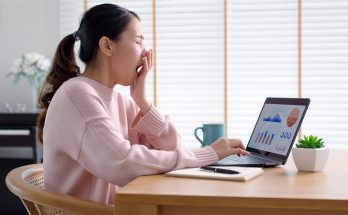With her book, The Life-Changing Magic of Tidying Up, and TV show, Tidying Up with Marie Kondo, Marie Kondo teaches people to let go of items that don’t spark joy in their hearts. She advocates a six-step process of sorting through belongings by category: clothes, books, papers, miscellaneous items, and sentimental items, in that order. Kondo believes that, by discarding things that don’t speak to us emotionally, we increase our ability to be mindful, introspective and live a more joyful life.
Science is behind her. Research shows that decluttering your environment affects your brain chemistry, providing both physical and psychological benefits.
A study published in 2011 by the Journal of Neuroscience showed that when you have too many items in your field of vision, your ability to focus on tasks and process information decreases, affecting memory and reducing productivity. Other evidence demonstrates that living amid a too much clutter keeps you in a perpetual fight or flight stress response, paralyzing you from taking action. This is evidenced by extreme hoarders, who become so overwhelmed with their hoard they can’t make basic decisions, such as taking out the garbage.
Clutter Catastrophes
Living amid clutter causes stress, anxiety, and depression. Relationship issues, sleep problems, obesity, and chronic allergies or illnesses are more prevalent among people living with too much stuff.
Clean Space, Clear Mind
Conversely, people who have learned to let go of belongings, and live in a clean and organized environment, report feeling calmer and more energetic, and tend to make healthier lifestyle choices.
Living without clutter makes you feel more self-sufficient, increasing your self-confidence. When you don’t need things, you realize you are enough. You can handle what life throws at you.
When your home is a haven, you lose the feeling you need to escape, whether physically or with food, alcohol or drugs.
Less Stuff, More Time
Managing less clutter means freeing up your time. You’ll have less to clean, and spend less time looking for things or moving things around to get to other things. You make time for the people and activities that are truly important.
Ready to get started? Atlanta-area professional organizer Kelsey Adams, of Creative Chaos Organizing, shares these tips from the pros.
- If you feel overwhelmed, start with one room, or even a smaller area such as a closet, cabinet or your desk.
- Categorize items, donate what you no longer want, then store remaining items by category.
- Adopt a one-in, one-out technique where you don’t purchase something new without getting rid of something else.
- Put everything back in its designated “home” each night.
- To prevent clothes from piling up, try choosing your outfits for the coming week every Sunday.
- Take inventory of groceries and household goods before shopping. Make a list of needed items and shop purposely rather than impulsively.
- Don’t keep every single photo or item from your children’s milestones, family vacations or family celebrations. You only need one or two to evoke memories of each event.
If you haven’t used it or worn it in the past year, chances are you don’t need it.




I already did the change yesterday. Cleaned out 7 things out of my closet and my daughters